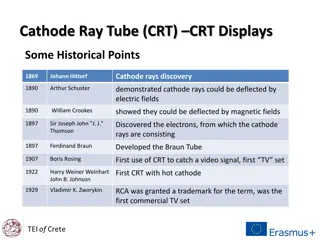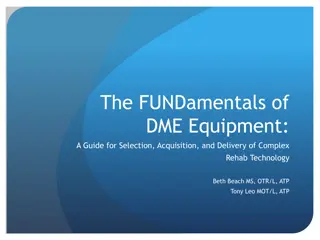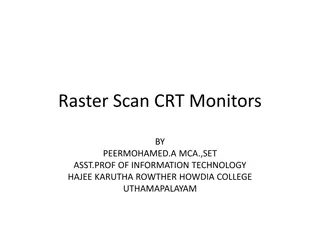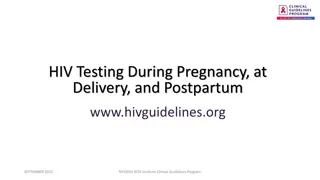Enhancing Workplace Safety Through CRT Testing Programs
Assure the effectiveness of your workforce by implementing Cost Reduction Technologies (CRT) Isokinetic Testing and Special Statistical Analysis. These programs offer significant benefits such as reduced workplace injuries, minimized downtime, savings on compensation costs, and improved compliance with ADA standards. CRT testing evaluates pre-employment fitness, joint comparison post-injury analysis, and functional capacity assessments for returning to work. Real-life case studies showcase remarkable results in reducing musculoskeletal injuries and overall workers' compensation claims. Watch the CRT testing video to learn more about enhancing workplace safety through data-driven methods.
Download Presentation

Please find below an Image/Link to download the presentation.
The content on the website is provided AS IS for your information and personal use only. It may not be sold, licensed, or shared on other websites without obtaining consent from the author.If you encounter any issues during the download, it is possible that the publisher has removed the file from their server.
You are allowed to download the files provided on this website for personal or commercial use, subject to the condition that they are used lawfully. All files are the property of their respective owners.
The content on the website is provided AS IS for your information and personal use only. It may not be sold, licensed, or shared on other websites without obtaining consent from the author.
E N D
Presentation Transcript
Assuring The People You Hire Can Do The Work
Cost Reduction Technologies (CRT) CRT Isokinetic Testing and Special Statistical Analysis Provides: Marked reduction in workplace injuries. Significant reduction in downtime. Substantial savings in worker compensation costs. Compliance with ADA standards. Help with legal, technical and business questions pertaining to testing. Simplified decisions by using a singular database. Decreased job turnovers. Dramatic reduction in direct and indirect employee costs. Promotes a safer work environment.
CRT Testing Programs Pre-Employment: The CRT the pre-employment test measures knee, shoulder, and trunk strength, endurance, and range of motion. These components are calculated by our proprietary formula to create a Body Index Score (BIS). The BIS is correlated to the Department of Labor's Dictionary of Occupational Titles. By matching an individual's physical functional strength, functional endurance, and functional range of motion to the physical demands of the job, CRT is shown to be successful in reducing the risk of injury. Joint Comparison: A post-injury test completed as part of the initial injury assessment and periodically throughout rehabilitation that compares an injured joint to its opposing uninjured joint. The joint comparison is typically administered prior to each physician visit to help determine progress, or lack there of. CRT clinicians can compare the post-injury strength to the non-injured joint, a baseline test if available, or to CRT normative data. Test evaluations can validate injury, determine strength deficit compared to baseline, or to normative strength based on gender, age, and body weight. Functional Capacity Return-to-Work Evaluation (FCE)/Return to Work Evaluation: An FCE measures the muscle strength and range of motion for the knees, shoulders, and trunk and typically is administered prior to being released by the physician to return to work. CRT provides test analysis and results directly to the treating physician with copies to third party claims administrators and internal departments as specified by the Employer. Each report provides an evaluation of the employees' injured joint and overall body strength.
CRT Case Studies Client Industry Results The frequency of knee, shoulder and back sprains and strains was 62% below the average of two control DCs and >73% below the temporary service agency providing workers to the test location. A Major Retail Company Distribution Reduced frequency of sprain and strain claims by first year employees from 22% before testing to 1% post- testing. International Heavy Equipment Manufacturer Reduced MSD injury frequency and severity due to overexertion 75% over three years. Reduced overall workers compensation claims by 65%. Security Company Of 475 tested and hired employees 15 reported first year MSD injuries with costs of less than $7,500. 86 untested employees during the same year reported injuries with costs over $870,000. Distribution Company
CRT Testing Video Click to Start Click to Start























